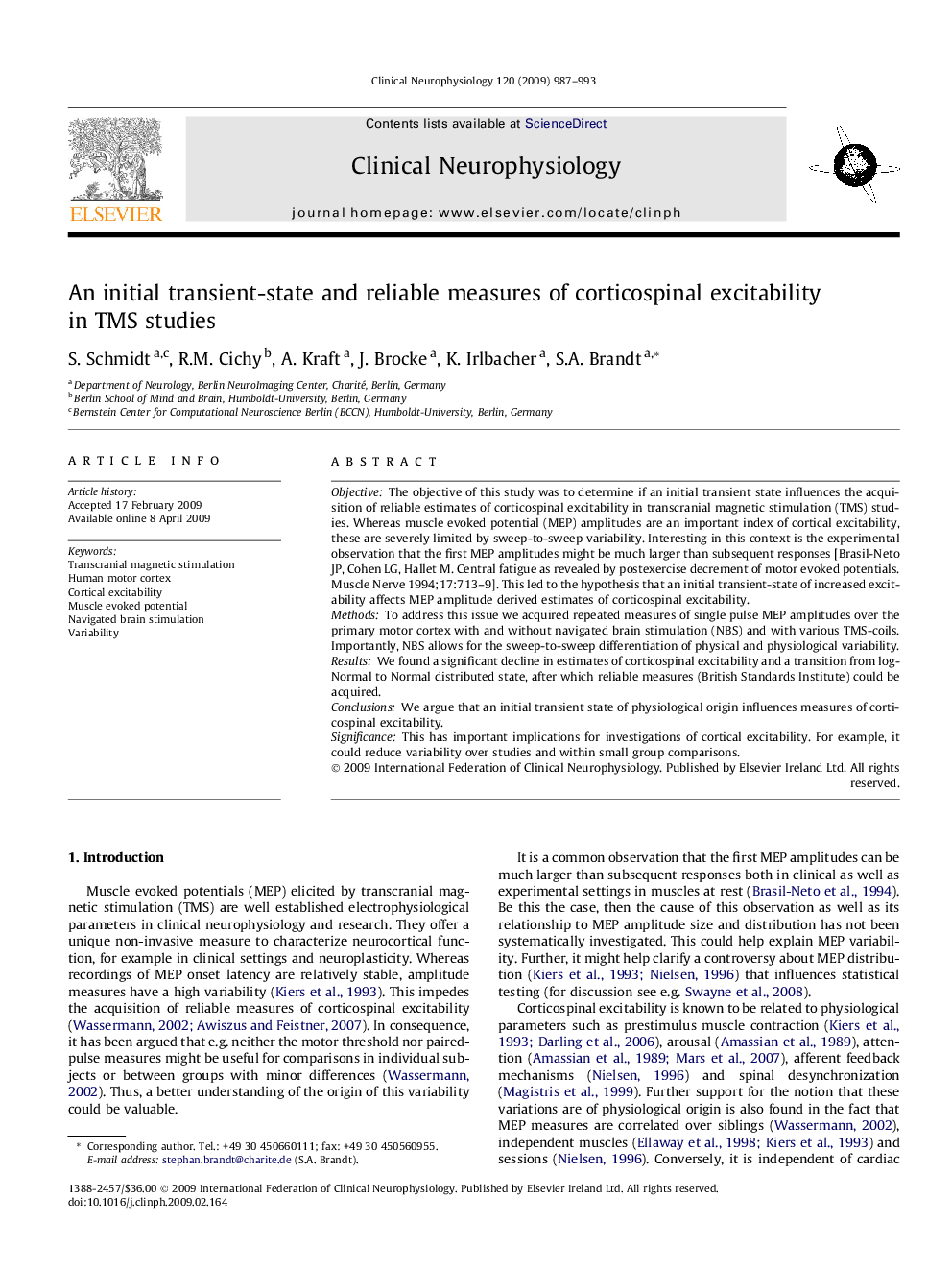| Article ID | Journal | Published Year | Pages | File Type |
|---|---|---|---|---|
| 3046058 | Clinical Neurophysiology | 2009 | 7 Pages |
ObjectiveThe objective of this study was to determine if an initial transient state influences the acquisition of reliable estimates of corticospinal excitability in transcranial magnetic stimulation (TMS) studies. Whereas muscle evoked potential (MEP) amplitudes are an important index of cortical excitability, these are severely limited by sweep-to-sweep variability. Interesting in this context is the experimental observation that the first MEP amplitudes might be much larger than subsequent responses [Brasil-Neto JP, Cohen LG, Hallet M. Central fatigue as revealed by postexercise decrement of motor evoked potentials. Muscle Nerve 1994;17:713–9]. This led to the hypothesis that an initial transient-state of increased excitability affects MEP amplitude derived estimates of corticospinal excitability.MethodsTo address this issue we acquired repeated measures of single pulse MEP amplitudes over the primary motor cortex with and without navigated brain stimulation (NBS) and with various TMS-coils. Importantly, NBS allows for the sweep-to-sweep differentiation of physical and physiological variability.ResultsWe found a significant decline in estimates of corticospinal excitability and a transition from log-Normal to Normal distributed state, after which reliable measures (British Standards Institute) could be acquired.ConclusionsWe argue that an initial transient state of physiological origin influences measures of corticospinal excitability.SignificanceThis has important implications for investigations of cortical excitability. For example, it could reduce variability over studies and within small group comparisons.
